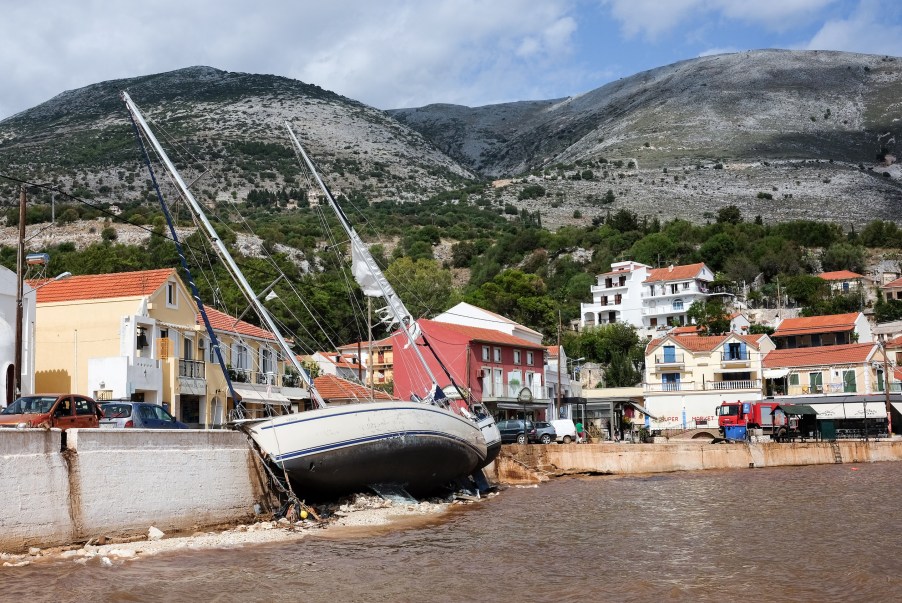
What Boat Owners Should Know in Hurricane Season
Most boat owners know that when a hurricane is forecasted, it’s imperative to batten down the hatches before the storm hits. Having a preparation plan in place will ensure your boat is as safe as possible.
A hurricane or tropical storm can cause high winds, torrential rain, damaging waves, and powerful surges that vary in strength and duration. If a boat isn’t secured during these poor weather conditions, it can incur severe damage.
Knowing how to protect your boat is the first step in being a responsible boat owner. Taking the time to secure your vessel will not only help you but others in the surrounding area as well.
Hurricane preparedness tips for boat owners
The time to start preparing is as soon as meteorologists indicate a storm is brewing. Waiting to see if it comes your way is never a good idea since the path of a hurricane can vary greatly and prove unpredictable.
Start by lowering all antennas, removing any loose items from onboard, and taking off all canvas coverings to reduce wind damage. Remove the Bimini frames and anything else that isn’t a permanent fixture.
Boating Magazine suggests you find a safe harbor to store your vessel. Typically, dry stack marinas built after 1992 are up to code and engineered to sustain hurricane-force winds. If hauling your boat to another location, get it out of the water as soon as possible.
If hunkering down on an exterior dock, slack your lines. Leave the second set a little looser than the first so that if one comes undone or chafes, the other will act as reinforcement. Face the bow of the boat into the waves. It is the sturdiest part of the vessel and less likely to be overcome by water.
When storing a boat on dry land, make sure to lash an anchor into the ground. Don’t leave the boat on a trailer or up on blocks, as it can’t sustain the force of high winds or flooding.
Storm surges can be very dangerous
A storm surge can cause more damage to a boat than severe winds. If possible, move your watercraft to a marina that has a floating dock with tall pilings. Securing your vessel to a fixed dock during a hurricane could prove catastrophic.
These powerful forces of nature can create flooding on top of the local tide levels. Boats can rise more than 10 feet during an intense storm, so having the lines secured is extremely important. If too loose, the boat will repeatedly bang against the dock.
BoatUS has determined that boats are safer being hauled out of the water when a storm surge reaches the level of the pilings. Experience shows that in extreme storms, a marine vessel can be pulled out to sea attached to the dock that it was once tied to.
Important things to remember when preparing for a hurricane
Once all the major areas of the boat that may be prone to damage are secured, there are a few more things you can do to make sure your marine vessel weathers the storm.
Charge all onboard batteries. If you don’t have a generator, this small step could save you if the power to the bilge pump goes out. Having extra batteries wired in parallel will also help when shore power is cut off.
Before the storm makes land, give your insurance company a call and verify that you have proper coverage for any impending threat. Ask if you have “named storm coverage” and find out what the consequences are if an unnamed storm hits the area where you are storing your boat.
Taking precautions before the hurricane hits will improve your chances of returning to a boat that has incurred little to no damage.


